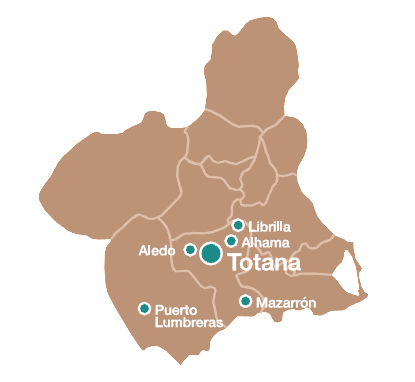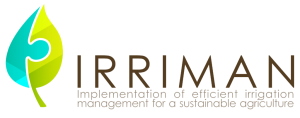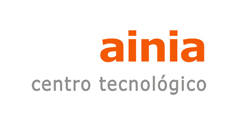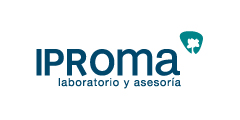Description of the project
Proyect LIFE14 ENV/ES/000150 - Synergic TPAD and O3 process in WWTPs for Resource Efficient waste management.
LIFE STO3RE is an european project to research, development and innovation, included in the LIFE Programme 2014, with demonstrative character.
LIFE STO3RE is a demonstration project that aims to protect aquatic environment against pollution caused by nitrates diffusion and micropollutants by means of an energetically sustainable joint management of Waste Water Treatment Plants (WWTPs) sludge and manure to obtain a high environmental quality “biofertilizer”.
LIFE STO3RE will implement an innovative and cost effective technology (dual acid-gas temperature phased anaerobic digestion configuration coupled to ozone oxidation and hydrothermal cavitation, CavO3+DAG-TPAD) successfully developed in a R&D project (Sludge4Energy) carried out by FACSA and AINIA and co-funded by the Competitiveness and Economy Ministry of Spain. STO3RE Demonstrative Plant will centralize and treat secondary sludge fromsmall WWTPs and cattle manure from surrounding farms within an extended area.
DURATION: September 2015-December 2018
BUDGET: 1.957.874 €
General & specific objectives
- To reduce the impact of cattle manure and sewage sludge (SS) on water bodies by applying an innovative treatment system (CaVO3+DAG-TPAD).
- To reduce the carbon footprint and GHG emissions due to animal manure and SS.
- To demonstrate the feasibility of a centralized management of the most important organic wastes with highest N concentration (SS and manure) in rural areas, with the aim to unify management methodologies and share treatment facilities, making more efficient the use of the shared equipments and reduces the investment and operational costs.
- To boost the re-use of SS and manure in agriculture to recycle the nutrients (phosphorus, P and nitrogen, N).
- To guarantee hygienic and chemical quality of sludge “biofertilizer” obtained from the CavO3+DAG-TPAD process, in order to assure its proper use in agriculture sector in line with the upcoming regulatory and normative requirements (4th Draft of the EU Directive above the application of sludges in agriculture).
- To achieve total energy self-sufficiency on the Demonstrative Plant through a maximization of biogas production from co-digestion of WWTP sludge and cattle manure.

- Nitrate Directive 91/676/ECC.
- European Commission Directive 86/278/EEC on the use of sewage sludge in agriculture. Also LIFE STO3RE is in line with the upcoming regulatory and normative requirements: 4th Draft of the European Directive above the application of sludge in agriculture
- Urban Waste Water Directive 91/271/ECC.
- Landfill Directive Council Directive 1999/31/EC.
- Environmental Quality Standards Directive 2008/105/EC.
- European Parliament Resolution of 12 March 2008 (2009/C 66 E/05) on sustainable agriculture and biogas.
Work plan
APreparatory actions
BImplementation actions
Beneficiaries project
FACSA (Sociedad de Fomento Agrícola Castellonense)
FACSA is a company specialized in water cycle management. Currently, the company offers every type of water cycle management service, from collection and processing to distribution and depuration. FACSA supplies water to over 400.000 people and provides sewage and water treatment services for 800.000 people. FACSA belongs to the corporation Grupo Gimeno, which comprises six different companies focused on environmental and water issues, and is one of the most experienced Spanish firms in water management and has been growing and expanding services.
The fundamental task of FACSA is based on drinking water management, from exploration to treatment and distribution of water. Areas where the company is active include water treatment, purifying technology, advanced management systems and automation. Additionally, FACSA manages more than 240 water treatment plants and is in charge of more than 315 chlorination systems.
FACSA will be the project coordinator of the overall LIFE STO3RE project, taking advantage of its position of water utility and WWTP operator. Within the project, FACSA will lead the design and construction of the demonstrative plant and its validation in Totana Wastewater Treatment Plant.
FACSA has wide experience in the direction of R&D and Demo collaborative projects in the water sector, and will be able to establish synergies with other initiatives at local, regional, national and European level.
ESAMUR
ESAMUR is the regional entity for sanitation and wastewater treatment in Murcia. It is a public corporation created in 2002 and dependent from the Council of Water, Agriculture and Environment of the Region of Murcia.
ESAMUR is responsible for collecting and managing the wastewater treatment tax. This economic resource is used for the operation, maintenance and control of public sanitation and sewage treatment facilities.
The experience of ESAMUR is focused in the following areas: exploitation and operation of WWTP, building, retrofitting and updating facilities and installations; sanitation tax inspection related to industrial discharges to the sewage networks and cooperation with the authorities in controlling industrial discharges; development, experimentation and dissemination of advances in wastewater treatment and reuse of treated water.
In the framework of the project LIFE STO3RE, ESAMUR will collaborate in the demonstrative plant construction due to its knowledge in the construction of this type of facilities. ESAMUR will be the responsible of the communication and dissemination actions.
AINIA (Asociación de Investigación de la Industria Agroalimentaria)
AINIA is a Spanish non-profit technological centre created in 1987 and formed by companies in the food manufacturing sector and related industries (more than 700 food companies as active members), whose objective is the promotion of innovation and technological development in the agro-food sector.
AINIA has a very strong expertise in R&D, Technical Assistance; Analysis; Training and Technology Transfer. During the last year near 200 R&D projects (national and international) were developed, as well as a high number of consulting and training activities.
AINIA is a leading technology centre in the area of Anaerobic Digestion (biogas/biomethane) of agricultural organic waste. Main research areas are: development of new pre-treatments, validation of new substrates, reduction of biological risks, control and modelling of the anaerobic process, microbiological characterization of the anaerobic fermentation by means of molecular biological tools (PCR/DGGE).
AINIA has participated and led various EC projects as INTEGRAL-B (LIFE): joint production of biogas and biodiesel from waste from the HORECA trade; AD-WISE (VIIPM) new VFAP on-line monitoring system based on spectroscopy (optical technology). BIOMAN (VIIPM): Economically efficient biogas production from manure fibers and straw; BIOGAS3 (Intelligent Energy Europe program): sustainable small-scale biogas from agri-food waste for energy self-sufficiency. LIFE SOSTRICE: CO2 Emission reduction of the rice Cultivation through energy valorisation of the rice straw.
IPROMA (Investigación y proyectos Medio Ambiente)
IPROMA offers a comprehensive range of laboratory testing, monitoring and consulting services. Our services comprise sampling and water testing; soil contamination analysis; waste, sediment, biota and air testing; and occupational hygiene and food safety services. In order to perform physicochemical and microbiological analyzes, we conduct analytical methods for the determination of organic pollutants, priority hazardous substances, drugs and pharmaceuticals, metals, radioactivity and biological indicators, most of them accredited according UNE-EN ISO 17025 Standard
IPROMA has 25 years of experience and has operations in 6 laboratories located along Spain: Castellón, Madrid, Barcelona, Sevilla, Pontevedra and Zaragoza and has one office in Valencia. The company is made up of 160 staff, highly qualified, being the majority university graduates.
At IPROMA, technological research and development has been the cornerstone of their activities. In 2011, IPROMA achieved the implementation and certification of its R&D Management System in accordance with the UNE 166002 standard. The aim of this standard is to provide guidelines to optimize the use of available resources and to take advantage of technological opportunities.
In the framework of the project LIFE STO3RE, IPROMA will participate in the analyses of priority substances and emergency micropollutants, mainly human and animal antibiotics, volatile organic pollutants and non-volatile organic pollutants. IPROMA will analyse both, the substrates and the digestate to study the efficiency of the process.
CSIC (Spanish National Research Council)
The Spanish National Research Council (CSIC) is the largest public institution dedicated to research in Spain and the third largest in Europe. According to its Statute (article 4), its mission is to foster, coordinate, develop and promote scientific and technological research, of a multidisciplinary nature, in order to contribute to advancing knowledge and economic, social and cultural development, as well as to train staff and advise public and private entities on this matter.
CEBAS-CSIC is an institute belonging to the Agencia Estatal CSIC. The aim of CEBAS-CSIS is to generate through investigation necessary knowledge which make possible the development of strategies to achieve the sustainability of the scant resources which exist / existing in semiarid areas, through their correct management and making possible the development of a quality agriculture and obtaining healthy and safe vegetable food.
CEBAS-CSIC Group which is participating in the LIFE STO3RE Project develops strategies for improving the knowledge on the mechanisms conducting the processes of soil degradation and rehabilitation, and particularly those on soil quality and functionality. In this sense, the recycled in agricultural soil of organic sanitized amendments from animal and urban wastes, and their effect on soil-plant system, will be studied in this LIFE project.
Location
Demonstration plant will be located in the WWTP of Totana

Networking
LIFE LO2X. Supercritical water co-oxidation (SCWcO) of urban sewage sludges and wastes. LIFE12 ENV/ES/000477.
WWW.LO2X.COM

LIFE CELSIUS. Sustainable and low energy wastewater treatment for warm climates. LIFE14 ENV/ES/000203.
http://www.lifecelsius.com/

LIFE ANADRY. Dry anaerobic digestion as an alternative management & treatment solution for sewage sludge. LIFE15 ENV/ES/000524.
WWW.LIFE-ANADRY.EU

LIFE LEACHLESS. Low energy treatment technology for leachate valorization. LIFE15 ENV/ES/000530.
www.lifeleachless.eu

LIFE IRRIMAN. Implementation of efficient irrigation management for a sustainable agriculture. LIFE13 ENV/ES/000539.
http://irrimanlife.eu/

LIFE SOSTRICE. CO2 Emission Reduction of the Rice Cultivation Through Energy Valorisation of the Rice Straw. LIFE 13 ENV/ES/001333.
http://www.sostrice.eu/es/

LIFE PURIWAR. New demonstrative pilot plant for the purification waste water with oils, fats and hydrocarbons. LIFE 12 ENV/ES/000684.
http://www.puriwat-life.es/

LIFE REMPHOS. Implementation of a new phosphate removal tertiary treatment in WWTP. LIFE 12 ENV/ES/000361.
http://www.remphos-life.es/

REMEB. Eco-friendly Ceramic Membrane Bioreactor Based on Recycled Agricultural and Industrial Wastes for Water Reuse. H2020-WATER-2014 No. 641998.
http://www.remeb-h2020.com/

LIFE EFFIDRAIN. Efficient integrated real-time control in urban drainage and wastewater treatment plants for environmental protection. LIFE14 ENV/ES/000860.
WWW.LIFE-EFFIDRAIN.EU/EN

WETWINE. A transnational cooperation project promotes the conservation and protection of the natural heritage of the wine sector in the SUDOE. SOE1/P5/0300.
www.wetwine.eu

LIFE MCUBO. LIFE MCUBO LIFE15 ENV/ES/000379. Modelling, Measurement and Improvement of the water management environmental impact in the food Industry.
www.lifemcubo.eu










